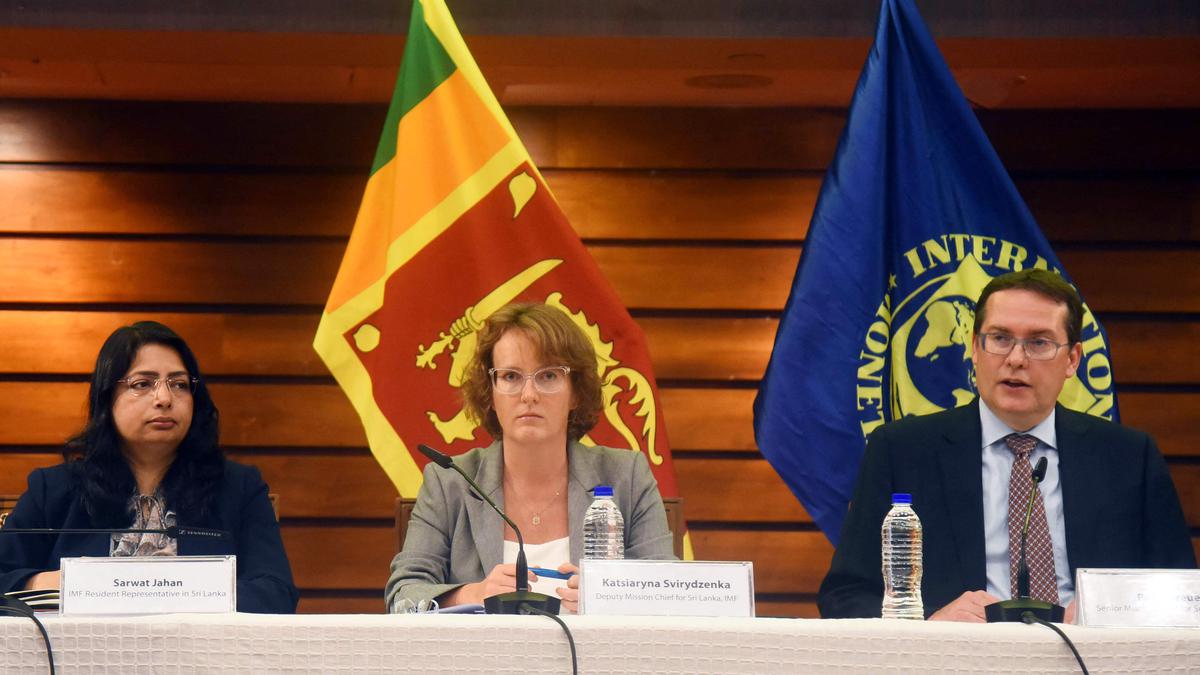
Second tranche of IMF bailout to Sri Lanka may be delayed; talks with govt to continue: official
The Hindu
IMF delays Sri Lanka's USD 2.9bn bailout tranche due to inconclusive debt restructuring. Country hit by worst economic crisis in history, with protests over fuel, fertilisers and essential commodities. IMF approved 48-month, USD 2.9bn Extended Fund Facility to support reforms. IMF mission noted stabilisation but full recovery not assured.
Sri Lanka's second tranche of a USD 2.9 billion bailout package from the IMF is likely to be delayed due to the inconclusive nature of the cash-strapped nation's external debt restructuring even as the global lender said on Wednesday that it will continue discussions to reach a staff-level agreement.
Sri Lanka was hit by its worst economic crisis in history when the country's foreign exchange reserves fell to a critical low and the public came out on the streets to protest the shortage of fuel, fertilisers and essential commodities.
The International Monetary Fund (IMF) in March this year approved a 48-month, USD 2.9 billion extended arrangement under the Extended Fund Facility (EFF) to support Sri Lanka’s economic policies and reforms.
The IMF mission that visited Sri Lanka for the first review of the global lender-supported Extended Fund Facility programme for the country noted that despite early signs of stabilisation, full economic recovery is not yet assured.
Sri Lanka was banking on the release of the second tranche of around USD 330 million at the end of the review as stated by State Minister of Finance Ranjith Siyambalapitiya last week.
"As Sri Lanka is restructuring its public debt which is in arrears, Executive Board approval of the first programme review requires the completion of financing assurances reviews. These financing assurances reviews will focus on whether adequate progress has been made with debt restructuring to give confidence that it will be concluded in a timely manner and in line with the program’s debt targets," Peter Breuer, the team leader, told reporters here on Wednesday.
“We need two important things to be satisfied. We need to reach agreement on set targets, policies, and reforms that will allow us to go forward… with the understanding that the objective of the programme can be reached,” Breuer said.

U.S. President Donald Trump threatens 200% tariff on wine, champagne from France, other EU countries
Trump threatens 200% tariffs on European alcohol in response to EU levies, sparking trade tensions and market uncertainty.












